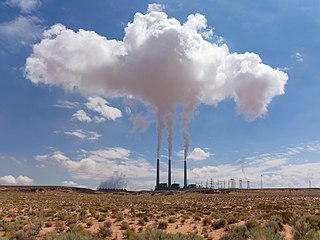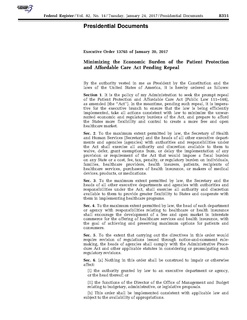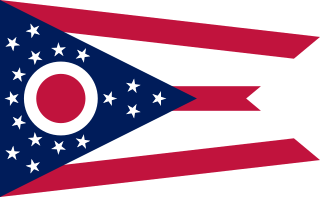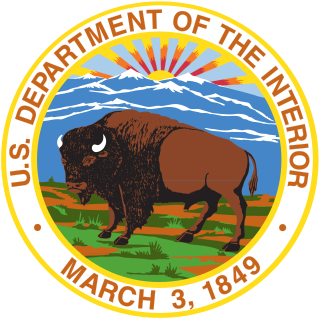
The United States Department of Commerce is the Cabinet department of the United States government concerned with promoting economic growth. Among its tasks are gathering economic and demographic data for business and government decision-making, and helping to set industrial standards. This organization's main purpose is to create jobs, promote economic growth, encourage sustainable development and improve standards of living for all Americans. The Department of Commerce headquarters is the Herbert C. Hoover Building in Washington, D.C.

The Code of Federal Regulations (CFR) is the codification of the general and permanent rules and regulations published in the Federal Register by the executive departments and agencies of the federal government of the United States. The CFR is divided into 50 titles that represent broad areas subject to federal regulation.
In the United States, net neutrality, the principle that Internet service providers (ISPs) treat all data on the Internet the same, and not discriminate, has been an issue of contention between network users and access providers since the 1990s. To elucidate the term "net neutrality", one can apply a metaphor that was given and illustrated by Michael Goodwin: In his illustration, he illustrates ISPs as the driveway that connects a home to the vast network of destinations on the internet, and net neutrality is the principle that prevents ISPs from slowing some traffic or charging a premium fee for other traffic.

The Dodd–Frank Wall Street Reform and Consumer Protection Act is a United States federal law that was enacted on July 21, 2010. The law overhauled financial regulation in the aftermath of the financial crisis of 2007–2008, and it made changes affecting all federal financial regulatory agencies and almost every part of the nation's financial services industry.

The Patient Protection and Affordable Care Act (PPACA), often shortened to the Affordable Care Act (ACA) or nicknamed Obamacare, is a United States federal statute enacted by the 111th United States Congress and signed into law by President Barack Obama on March 23, 2010. Together with the Health Care and Education Reconciliation Act of 2010 amendment, it represents the U.S. healthcare system's most significant regulatory overhaul and expansion of coverage since the passage of Medicare and Medicaid in 1965.

Mignon L. Clyburn is a former commissioner at the United States Federal Communications Commission (FCC), serving in that position since she was nominated by President Barack Obama and confirmed by the US Senate in August 2009.
The Consumer Financial Protection Bureau (CFPB) is an agency of the United States government responsible for consumer protection in the financial sector. CFPB's jurisdiction includes banks, credit unions, securities firms, payday lenders, mortgage-servicing operations, foreclosure relief services, debt collectors and other financial companies operating in the United States.

Mark Randall Meadows is an American politician who has been the U.S. Representative for North Carolina's 11th congressional district since January 2013. He is a member of the Republican Party and chair of the Freedom Caucus. He is considered one of President Donald Trump's closest allies in Congress.
The Clean Water Rule is a 2015 regulation published by the U.S. Environmental Protection Agency (EPA) and the United States Army Corps of Engineers (USACE) to clarify water resource management in the United States under a provision of the Clean Water Act of 1972. The regulation defined the scope of federal water protection in a more consistent manner, particularly over streams and wetlands which have a significant hydrological and ecological connection to traditional navigable waters, interstate waters, and territorial seas. It is also referred to as the Waters of the United States (WOTUS) rule, which defines all bodies of water that fall under U.S. federal jurisdiction. The rule was published in response to concerns about lack of clarity over its scope from legislators at multiple levels, industry members, researchers and other science professionals, activists, and citizens.

The Clean Power Plan was an Obama administration policy aimed at combating anthropogenic climate change that was first proposed by the Environmental Protection Agency (EPA) in June 2014. The plan was widely expected to be eliminated under President Donald Trump, who signed an executive order on March 28, 2017 mandating the EPA to review the plan. On June 1, 2017, the United States withdrew from the Paris Agreement. In August 2017, the U.S. Court of Appeals for the District of Columbia Circuit granted the EPA an additional 60 days to review the CPP and submit their position to the court, before continuing the process to settle the case about the legality of the CPP.
The 2017 United States federal budget is the United States federal budget for fiscal year 2017, which lasted from October 1, 2016 to September 30, 2017. President Barack Obama submitted a budget proposal to the 114th Congress on February 9, 2016. The 2017 fiscal year overlaps the end of the Obama administration and the beginning of the Trump administration.

The first 100 days of Donald Trump's presidency began on January 20, 2017, the day Donald Trump was inaugurated as the 45th President of the United States. The first 100 days of a presidential term took on symbolic significance during Franklin D. Roosevelt's first term in office, and the period is considered a benchmark to measure the early success of a president. The 100th day of his presidency was April 29, 2017. Trump first announced his plan for the first hundred days of his presidency in Gettysburg, Pennsylvania, on October 23, 2016, before the election.
The Stream Protection Rule was a United States federal regulation issued by the Office of Surface Mining Reclamation and Enforcement that went into effect on January 19, 2017. These regulations implement Title V of the 1977 Surface Mining Control and Reclamation Act (SMCRA), the focus of which were the conditions for issuing permits to begin a mining operation. The original regulations had been issued in 1979 and were updated in 1983. Litigation over mountaintop removal mining required changes to the regulations, which were issued in 2008. These regulations were in turn struck down by a judge after litigation by environmental groups. The new regulations, the Stream Protection Rule, were issued in January 2017.

The environmental policy of the Donald Trump administration represents a shift from the policy priorities and goals of his predecessor, Barack Obama. While Obama's environmental agenda prioritized the reduction of carbon emissions through the use of clean renewable energy, the Trump administration has sought to increase fossil fuel use and scrap many environmental regulations which he has referred to as impediments to business. In July 2018, amid numerous ethics investigations, Trump's first appointment for administrator of the Environmental Protection Agency (EPA), Scott Pruit, resigned and he was replaced by Andrew Wheeler.

Executive Order 13765 is the first executive order signed by U.S. President Donald Trump on January 20, 2017, which set out interim procedures in anticipation of repeal of Obamacare.

Executive Order 13772, titled "Core Principles for Regulating the United States Financial System", is an executive order signed by U.S. President Donald Trump on February 3, 2017. The eighth executive action by the president during his first 100 days in office, it establishes the "core principles" of regulation under the Trump Administration and tasks the United States Department of the Treasury to review the Financial Stability Oversight Council, originally established under the Dodd–Frank Wall Street Reform and Consumer Protection Act, and report to the President in 120 days on current regulations and their effectiveness in carrying out these core principles.

The Repeal of the Disclosure of Payments by Resource Extraction Issuers Rule is an Act of Congress that nullifies the Securities and Exchange Commission regulation known as the "Disclosure of Payments by Resource Extraction Issuers" rule. This was the first use of the Congressional Review Act during the Trump administration to overrule a federal regulation.

The Repeal of the "Implementation of the NICS Improvement Amendments Act of 2007" was legislation introduced in the United States House of Representatives on January 30, 2017 by Representative Sam Johnson of Texas. The bill repeals a rule issued by the Social Security Administration that would have required Federal agencies to identify individuals who receive disability insurance benefits under Title II of the Social Security Act or Supplemental Security Income and have been "determination by a court, board, commission, or other lawful authority that a person, as a result of marked subnormal intelligence, or mental illness, incompetency, condition, or disease: (1) Is a danger to himself or to others; or (2) Lacks the mental capacity to contract or manage his own affairs." in order to potentially prohibit such individuals from purchasing firearms or from having other purchase firearms on their behalf. The repeal was signed into law by President Donald Trump on February 28, 2017.













